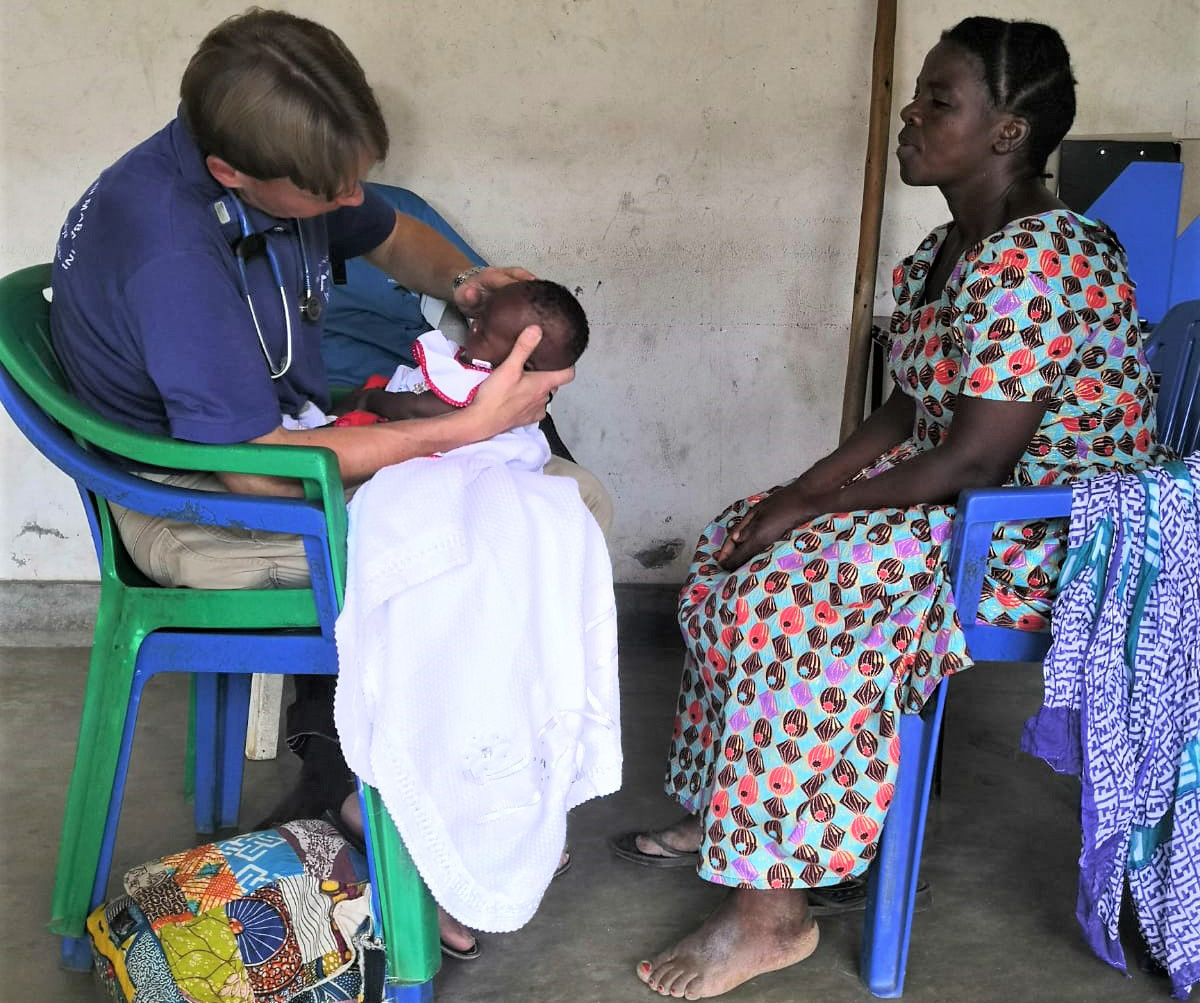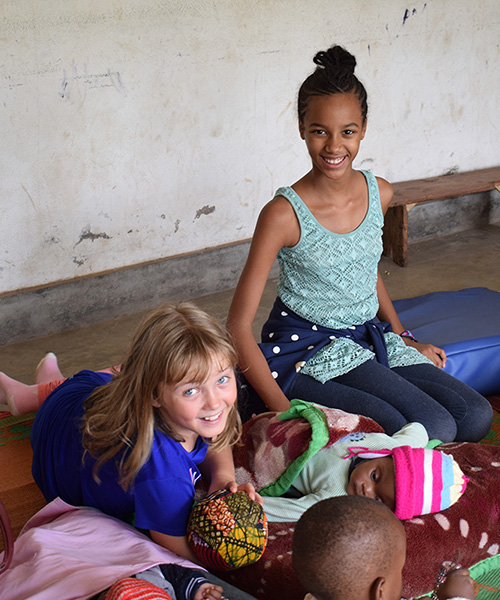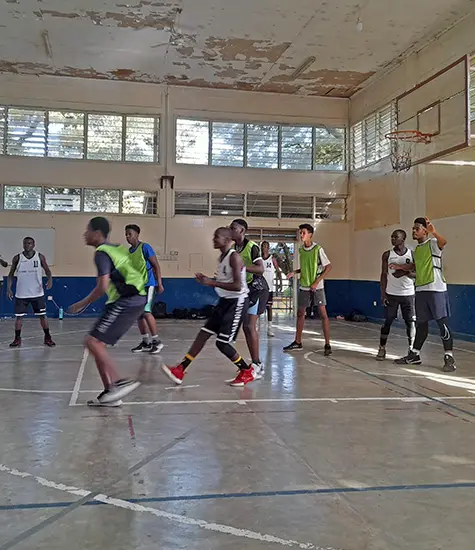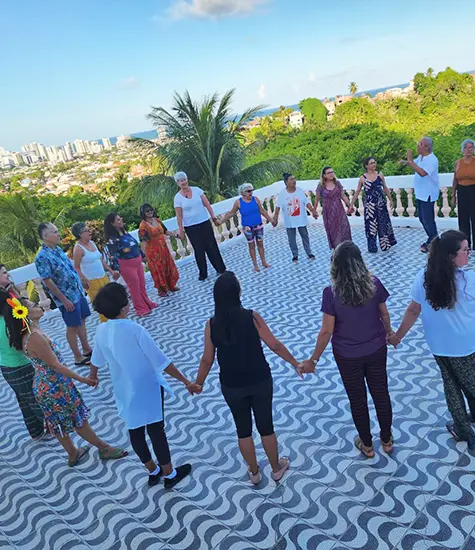
A mother, concerned about her baby’s head, seeks help from George at the Mabatini health program for children with disabilities.
What good is it to me if Mary gave birth to the Son of God 1,400 years ago, and I do not also give birth to the Son of God in my time and my culture?
We are all meant to be mothers of God. God is always needing to be born.
—Meister Eckhart ( c. 1260 – c. 1328)
According to Mwalimu Magdalena, our wonderful Swahili teacher, the verb kujifungua is only used for the physical act of birthing because it literally means “to open yourself.” But kuzaa is used equally for women and men, “to give birth” in the sense of being the parent of children—a verb of generativity that I don’t think we have in English.
I love the imagery and symbolism of pregnancy and birth during this time of Advent because it is so rich with meanings (waiting, nurturing, courage, strength, physical capability, new beginning) and also of course because I love accompanying women as they prepare and work to bring new life into the world.
And in light of the Swahili verb, I read the opening quote from a 13th-century mystic as a true call to action—or perhaps more accurately, a call to that almost mystical mixture of intense action and mindful being that characterizes both the Jesuit tradition of being “contemplatives in action” and the actual experience of being pregnant and giving birth.
Here at Bukumbi Hospital, I continue to find special joy in my work with the weekly clinic for Prevention of Mother-to-Child Transmission of HIV, accompanying women through their pregnancies and the first 18 months of their baby’s life, as they work hard to protect their children from lifelong infection with HIV.

Susanna and her friend Abigail play with the children at the Mabatini program.
George continues in the children’s ward and the mother-baby section of the hospital, along with school health screenings and the Mabatini program for children with disabilities. Recently our whole family participated in a collaborative experiment of holding a popular-education-style workshop with the parents of children in the program together with playtime for their children in a separate room. I led the workshop, while George, Susanna and Louisa, along with the other Maryknoll family, Ana the physical therapy assistant, and two other friends played with about 25 children.
The separate children’s playtime gave the parents (mostly mothers) the chance not only to participate more fully in the workshop, but also to let someone else care for their children, despite their disabilities, and for once not have to worry about their needs, for just a couple hours. It was also a chance for us to experience how exhausting it is to care for a child with very limited cognitive understanding and communication, or other limitations. Many of these parents have multiple other children as well. We certainly left with a deepened admiration for the work of these dedicated caregivers.
It was not all work, though—there were entertaining moments. Baraka, a small 4-year-old, who had severe hydrocephalus as a baby, enchanted the volunteers with his telephone chats. He has a shunt (a tube to drain the excess cerebrospinal fluid from the head into the abdomen), which has worked quite well to take pressure off his brain, allowing his cognitive development.
During the playtime, he sat on the mat alternating between the wooden block painted like a cellphone and the shiny shower head to make his calls, saying into his phone “Halo! Uko wapi? Hiya, nitakupigia baadaye!” (Hello! Where are you? Ok, I’ll call you later”), and awaiting a response from his conversation partner. Even when he’s being serious, you can’t help but laugh. He’s just too cute!

Baraka chats on the ‘phone’ with Claire Veryser.
Unfortunately, because his head is still so large and heavy, it takes much more strength and balance than it would take another child his age for him to stand up and walk. George was helping him use the tiny walker, made by a local craftsman, but after standing and taking 2 or 3 steps, Baraka looked at George and said, “Ehhh! Nimechoka!! Nibebe!!” (Wow, I’m tired! Please carry me!)
In this season of expectant waiting and preparation for new life and beginnings to come, we give thanks for the many people who contribute to our family’s life here in Tanzania, including Baraka and the other children in Mabatini, the mothers of Bukumbi and their babies, and all of you. May we all come to know how we can give birth to Divine Love in our times and our cultures.









As I read the latest Anne and George letter, I am sitting in the reception area of Cabin Creek Health Center at Dawes, WV. George and Anne were our colleagues here before they moved on to the Tanzania phase of their family’s life. It is so inspiring to hear their stories and see the awesome pictures. We miss them but feel great solidarity with them. We are all doing the same work: Providing health care as a human right to all people regardless of income or race or language or education or location. That is just as great a challenge in the USA (where maternal mortality is increasing) as it is in Tanzania. A Christian view is that we are all giving birth to the kingdom of God on earth. I am sure that the Jewish, Muslim, and Hindu faiths have their own ways of expressing a similar idea.